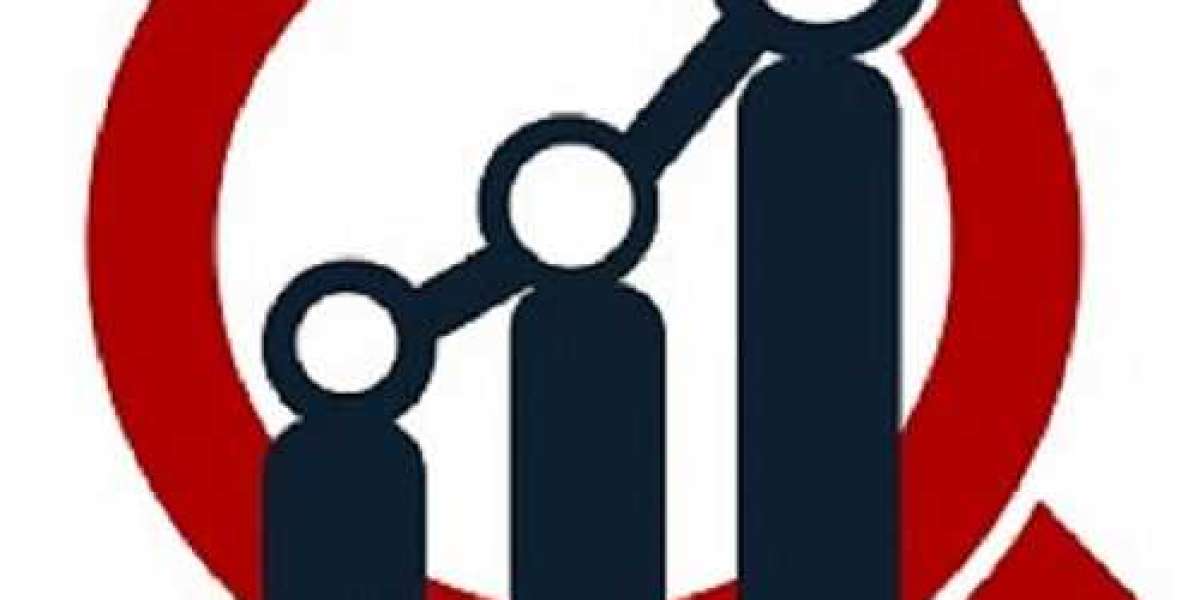Industrial Automation Market Analysis
In the dynamic landscape of modern manufacturing and production, industrial automation stands as a beacon of efficiency, productivity, and innovation. This transformative technology, encompassing a myriad of solutions ranging from robotics and artificial intelligence to sensors and control systems, is revolutionizing the way industries operate, optimize processes, and deliver value to customers. As the Japan Industrial Automation Market continues to evolve and expand, driven by the pursuit of operational excellence, cost optimization, and technological advancement, it heralds a new era of industrial prowess and competitive advantage.
The Essence of Industrial Automation Technology
At its core, industrial automation involves the use of various technologies and systems to automate and streamline manufacturing, production, and logistical processes. This encompasses a wide spectrum of applications, including robotic arms for assembly, programmable logic controllers (PLCs) for process control, and supervisory control and data acquisition (SCADA) systems for real-time monitoring and decision-making.
Key components of industrial automation include:
- Robotics and Cobots: Industrial robots, equipped with advanced sensors and actuators, perform a multitude of tasks with precision and speed, ranging from material handling and welding to pick-and-place operations. Collaborative robots (cobots) work alongside human operators, enhancing productivity and safety in manufacturing environments.
- Sensors and Instrumentation: Sensors play a crucial role in industrial automation by providing real-time data on temperature, pressure, flow, and other variables. This data is used for process optimization, predictive maintenance, and quality control, enabling proactive decision-making and continuous improvement.
- Machine Vision and Inspection Systems: Machine vision systems utilize cameras and image processing algorithms to inspect and analyze products for defects, ensuring quality and compliance with specifications. These systems are integral to automated inspection, sorting, and packaging processes in industries such as automotive, electronics, and pharmaceuticals.
- Control Systems and PLCs: Programmable logic controllers (PLCs) serve as the brain of industrial automation, controlling machinery, processes, and equipment based on predefined logic and algorithms. These systems enable precise control, sequencing, and coordination of manufacturing operations, enhancing efficiency and reliability.
- IIoT and Connectivity Solutions: The Industrial Internet of Things (IIoT) facilitates connectivity and data exchange between devices, machines, and systems within industrial environments. By harnessing data analytics, cloud computing, and edge computing technologies, IIoT enables predictive maintenance, asset optimization, and remote monitoring of industrial assets and processes.
Market Dynamics and Growth Drivers
The Industrial Automation Market is driven by a multitude of factors, each contributing to its sustained growth and evolution:
- Demand for Operational Efficiency and Cost Optimization: In an increasingly competitive global marketplace, industries are under pressure to enhance operational efficiency, reduce costs, and improve profitability. Industrial automation enables streamlining of processes, elimination of manual errors, and optimization of resource utilization, leading to greater productivity and competitiveness.
- Focus on Workplace Safety and Ergonomics: Automation technologies, particularly collaborative robots (cobots), are gaining traction due to their ability to enhance workplace safety and ergonomics. By automating repetitive, physically demanding tasks and working alongside human operators, cobots reduce the risk of workplace injuries and improve employee well-being.
- Industry 4.0 and Digital Transformation Initiatives: The advent of Industry 4.0 and digital transformation initiatives has accelerated the adoption of advanced automation technologies such as IIoT, big data analytics, and artificial intelligence in industrial settings. These technologies enable real-time data-driven decision-making, predictive maintenance, and agile manufacturing, facilitating the transition towards smart, connected factories of the future.
- Shift Towards Flexible and Agile Manufacturing: With changing consumer preferences and market dynamics, industries are increasingly embracing flexible and agile manufacturing paradigms. Automation technologies such as robotics, digital twins, and adaptive control systems enable rapid reconfiguration, customization, and scalability of production processes, enabling companies to respond quickly to market demands and opportunities.
- Rise of Industrial Robotics and Autonomous Systems: The adoption of industrial robots and autonomous systems is on the rise across various industries, driven by advancements in robotics, artificial intelligence, and machine learning. These systems offer unparalleled precision, repeatability, and flexibility in tasks such as material handling, welding, painting, and assembly, unlocking new levels of efficiency and productivity.
Challenges and Opportunities
Despite its immense potential, the Industrial Automation Market faces certain challenges, including:
- Integration and Interoperability: Achieving seamless integration and interoperability between diverse automation systems, legacy equipment, and enterprise IT systems remains a complex and ongoing challenge for industries.
- Skilled Workforce and Training: The rapid pace of technological innovation in industrial automation necessitates a skilled workforce capable of designing, implementing, and maintaining automation solutions. Addressing the skills gap and providing adequate training and education opportunities are essential for maximizing the benefits of automation.
- Cybersecurity and Data Privacy: With increasing connectivity and digitization, industrial automation systems are susceptible to cybersecurity threats such as malware, ransomware, and data breaches. Implementing robust cybersecurity measures and ensuring data privacy are paramount to safeguarding critical infrastructure and sensitive information.
- Cost and ROI Considerations: While automation technologies offer long-term benefits in terms of productivity gains, quality improvement, and cost savings, the initial investment costs and return on investment (ROI) considerations may pose challenges for some industries, particularly small and medium-sized enterprises (SMEs).
- Ethical and Societal Implications: The widespread adoption of automation technologies raises ethical and societal implications related to job displacement, workforce retraining, and socioeconomic inequality. Balancing the benefits of automation with the needs and concerns of workers and communities is essential for fostering inclusive and sustainable economic growth.
However, these challenges also present opportunities for innovation, collaboration, and value creation:
- Collaborative Ecosystems and Partnerships: Collaborative partnerships between technology providers, system integrators, academia, and industry stakeholders can drive innovation, knowledge exchange, and best practices in industrial automation.
- Advancements in AI and Robotics: Continued advancements in artificial intelligence (AI), machine learning, and robotics hold promise for enhancing the capabilities and versatility of industrial automation systems. Autonomous robots, predictive analytics, and adaptive control algorithms enable more efficient, autonomous, and adaptive manufacturing processes.
- Focus on Human-Centric Design and User Experience: Human-centric design principles and user experience considerations are becoming increasingly important in the development of automation technologies. Designing intuitive interfaces, ergonomic workstations, and user-friendly automation solutions enhances acceptance, usability, and effectiveness in industrial settings.
- Reskilling and Upskilling Initiatives: Investing in reskilling and upskilling initiatives to equip workers with the necessary digital literacy, technical skills, and problem-solving abilities for the age of automation fosters a culture of lifelong learning and empowers individuals to thrive in the evolving labor market.
- Sustainable and Responsible Automation: Embracing principles of sustainability, responsible automation, and ethical AI in the design, deployment, and governance of automation technologies ensures that they contribute positively to societal well-being, environmental sustainability, and inclusive growth.
Future Outlook
The future of the Industrial Automation Market is characterized by continued innovation, convergence, and transformation across industries and applications. As automation technologies evolve and mature, we can expect to see greater integration of AI, robotics, IoT, and data analytics, enabling autonomous, adaptive, and intelligent manufacturing systems.
From smart factories and digital twins to connected supply chains and autonomous logistics, industrial automation is poised to redefine the way goods are produced, distributed, and consumed. By unlocking new levels of efficiency, flexibility, and sustainability, automation technologies will drive competitiveness, resilience, and prosperity in the digital economy of the future.
In conclusion, the Industrial Automation Market represents a convergence of technological innovation, operational excellence, and human ingenuity, poised to shape the future of industry and commerce. With its transformative potential to enhance productivity, optimize resource utilization, and improve quality of life, industrial automation is not just a tool for efficiency but a catalyst for progress and prosperity on a global scale. As industries embrace the opportunities and address the challenges of automation, they will embark on a journey of innovation and growth that will redefine the possibilities of the modern world.
Industrial Automation Market Highlights:
- Industrial Automation Market Size
- Industrial Automation Market Trends
- Industrial Automation Market Analysis
- Industrial Automation Market Share
- US Industrial Automation Market
- Industrial Automation Companies



